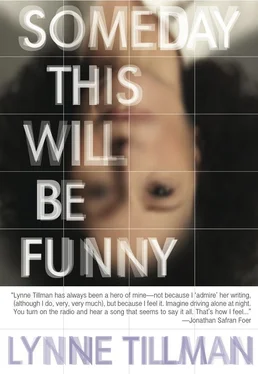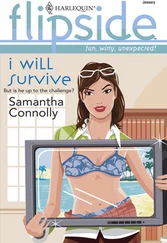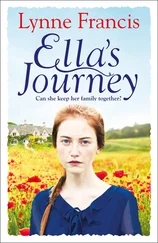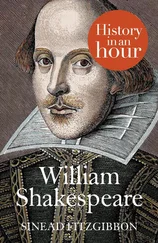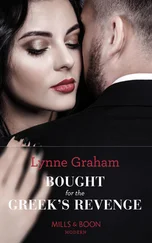“ ‘Cause love comes in spurts/In dangerous flirts/and it murders your heart/They didn’t tell you that part/Love comes in spurts/Sometimes it hurts/Love comes in spurts/oh no, it hurts.” (Richard Hell)
I love you is the structure through which I love you. “I” is such a lonely, defiant letter. In this fatal and fateful sentence it’s the first word — in the beginning, there was I — a pronoun, the nominal subject. In the love sentence, “I” submits to “you.” That I is mine. That I is yours. That I is for you.
Dearest,
I’m the one who loves you better, longer, stronger, whose passion robs you of passion, whose daring steals your courage, whose boldness provokes your fear, whose gentleness savages you, whose absence electrifies you.
Paige waved a paper heart in the air and pretended to enact an ancient, time-honored ritual. She considered burning the heart in a funeral pyre and laughed out loud, a hollow sound with reverberations only for her. You never see yourself laughing, Paige realized. Once upon a time a man she loved caught her looking at herself in a mirror and noticed something she didn’t want him to see.
“I’ll be your mirror/ I’ll be your mirror/ Reflect what you are/ In case you don’t know.” (Lou Reed)
“The woman who sang those lines died in a bicycle accident on an island. When she first sang the song, she was beautiful and somber and lonely, but not alone. She died in what’s called a freak accident, and, at the time of her death, her body was swollen from years of shooting heroin, so she was no longer beautiful, but she was always, or still, lonely. It was spring when she died, it may have been summer.”
I love you.
Love, the second word in the sentence, is the verb and acts by joining the two pronouns, pro-lovers, you and I. Love melts “you” into “I” or is it just grammar that bends “I” into “you,” just that old subject to object-of-the-verb magic? Love dissolves disbelief, since it defies credulity. Love establishes an impossible, enduring, tender, spidery bridge between us, two poor pronouns. You and I are simple, one-syllable words, you and I need love.
“We do not see what we love, but we love in the hope of confirming the illusion that we are indeed seeing anything at all.” (Paul de Man)
“Stereotype/Monotype/Blood type/Are you my type?” (Vernon Reid)
Paige shuffled the hearts and named each of them, and while she did, forced herself to remember him and herself with as much detail and vividness as she could bear. It’s often hard to bear your own history. A languid heaviness coursed through her and then settled like a stone in her stomach.
“I walked across the Brooklyn Bridge with him. The cars and trucks rumbling and tearing beneath us were terrifying. He thought it was weird that I didn’t find any security in the fact that there was something solid under our feet. He held my hand, the way I hold this heart. Later, we went for Indian food. It was the first time I ever ate it. Then we went back to my place and made love for the first time, too. He stroked the insides of my thighs.”
“Love u more than I did when u were mine.” (Prince)
“The heart you betrayed,/ the heart you lost,/ see in this hour/ what a heart it was.” (Bellini, Norma)
Dearest,
I’m afraid now too, though I’m not actually walking over a bridge. There isn’t anything beneath my feet. I can’t breathe or yawn or laugh or smile or cook or move or run or jump or stand or sit. I am restless. Bedeviled angel, sweet oxymoron, I ask questions you can’t possibly answer. I’m not reasonable, absolutely not, why should I be, why should you? Really, I only have questions and you are a question to me, you are the question. I ask myself — you — what is it you want and what is it I want. Our wanting isn’t going to be enough, though it is for now, wanting you is enough now. I can’t live without you. See how you have destroyed me?
“For love — I would/ split open your head and put/ a candle in/ behind the eyes.” (Robert Creeley)
Even so, or even more, I love you.
“You” is, you are, the last word, the last word and the first one too. In “you” there are two letters more than “I”—the difference is a diphthong, two vowels to create one sound — ooh, you-ooh. The vowels demand each other, they nestle together to make their sound.
Dearest,
My love clings to you. It is silent and dark, hidden from everyone else but you. Love is silent, sex is noisy. To write love, that’s what I really want, and to write it to you must be finding silence also. Soundlessly, I’d put everything into words, and though the words are not actually love but how love would speak if it could — if my heart could talk — the words would make no sound. Yet, through my desire, with my will, they would strike a chord inside you. My words would creep and slither into you, if I had my way, and I want my way with you, and words once inert on paper would suddenly wing through the air like missiles. Silly or profound, they would fly into you, and you would embrace them or, more perfectly, they would embrace you. You would be entered, love, you would be my precious entrance to love and also my final destination, eternal enchantment.
“What is the use of speech? Silence were fitter:/ Lest we should still be wishing things unsaid./ Though all the words we ever spake were bitter,/ Shall I reproach you dead?” (Paul Verlaine)
Paige drank green tea and wondered what had happened to him, the lanky, green-eyed young man who hated himself, who said, I don’t know why you like me. She hadn’t liked him but had loved something about him.
“He was living on West Fourth Street and had been suicidal for years. He told everybody his brother was a movie star, and that was true. His room was in the back of a store and on the floor was a single mattress. The mattress looked like an unopened envelope. He said he had not made love in three years, and after he came, he cried, and the next day he hovered in a doorway, there was a violet gash on his neck. Then he disappeared forever.”
Obliviously, I love you.
She was becoming stiff and rose from the table, and walked from room to room, imagining she was a ferocious animal. Paige paced back and forth, back and forth, not sleek as a tiger or cunning as a fox but on the prowl. She felt a little hungry.
“Even today love, too, is in essence as animal as it ever was.” (Freud)
Paige took up the scissors again. Love, she considered with affection, should be generous, at the very least it should appear to be. She smiled absentmindedly as she cut more hearts, attempting to keep them attached like a chain of paper dolls. Was she fashioning love? Wasn’t the memory better than the love? The shapes grew progressively more uneven and awkward.
“You planted yourself in my garden, taking up room, then, oh, you grew, you became a weed, you were so tall, with such nerve. Your satin trousers and you were much too sleek. I tried to escape, but you insisted. You kept on insisting, about what, toward what end, I can’t remember. I wish flowers had never been looked at before. When we stood up, I felt taller, as tall as you, no, taller. You were awkward, but I remember all your questions.”
Awkwardly, I love you.
Dearest,
I can still say it, common as it is, common as mud and as thick and undecipherable. In my dreams I cleave to you, I hold you, your body bent to mine, your body reminding me of someone else who is no longer here to love me, but then that’s love, one body replaces another. I don’t mean that, not just any other, yours, only you. And only you understand me, the me who loves you. You and I make meaning together, that’s how love is, what love is — meaning. Meaning I love you. Meaning, I love you. “I love you” means I won’t listen to reason.
Читать дальше
